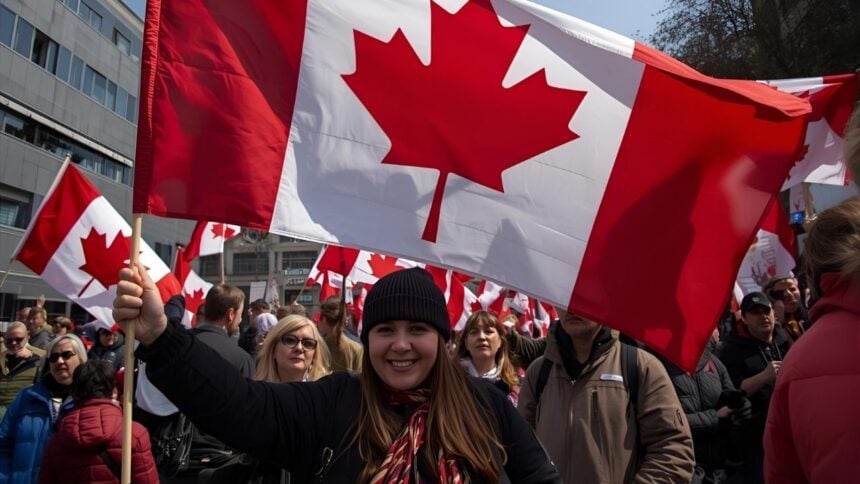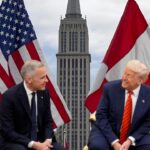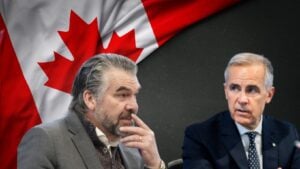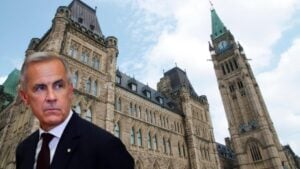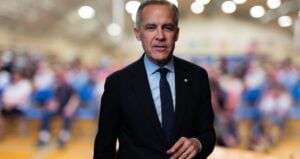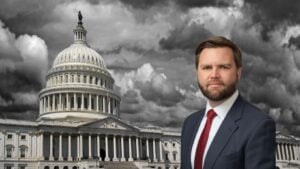Canadian leaders closed ranks this week against what several described as demeaning rhetoric toward the country, underscoring that sovereignty is nonnegotiable even as Ottawa works to de-escalate a grinding trade fight with the United States.
Foreign Minister Mélanie Joly has repeatedly said Canada’s sovereignty “is not up for debate,” a line she delivered to G7 counterparts in Quebec this spring amid U.S. talk about Canada becoming a “51st state.”
The latest flare-up followed comments from U.S. Ambassador Pete Hoekstra, who told a Halifax business audience he was disappointed by what he called “anti-American” overtones in Canada’s elbows-up posture and pushed back on the idea that the countries are in a trade war.
His remarks landed poorly among Canadian officials and business leaders who say the dispute is already hurting factories and confidence.
British Columbia Premier David Eby, asked about the ambassador’s critique in July, said many Canadians would be “proud to be considered mean and nasty” if that is what it takes to defend the country’s sovereignty and economy.
It was an unmistakable signal that provincial leaders are prepared to back Ottawa on the file while keeping cross-border relationships intact.
At the federal level, Ottawa is trying to balance firm language with pragmatic engagement.
Prime Minister Mark Carney met President Donald Trump at the White House and won warm words about their personal rapport, but no breakthrough on tariffs.
The meeting underscored how strained the bilateral relationship has become, as detailed in Carney meets Trump as US-Canada ties hit a postwar low.
The visit set expectations for continued, incremental talks rather than a grand bargain, with the 2026 review of the North American trade pact looming as a forcing event.
That calibrated approach reflects political reality after months of friction. In May, Carney told Trump in the Oval Office that Canada is “not for sale,” a retort to annexation chatter that drew a tart “never say never” from the president.
The exchange captured both the stakes and the style of a negotiation that now touches everything from metals and autos to energy and defense.
Canada and the United States exchange roughly billions of dollars in goods and services every day, and the two economies are tightly stitched together in autos, agriculture, aerospace, oil, gas, and critical minerals.
Any widening of tariff lines or lingering uncertainty about the 2026 pact review threatens to slow investment, strain inventories, and trim margins on both sides of the border.
That is why cooler language out of Washington and Ottawa would be welcomed by executives even as politicians sharpen their messages at home.
Canada has selectively lifted some countermeasures to make room for talks while the United States has kept key tariffs in place, particularly on steel and aluminum, which complicates purchasing for manufacturers sensitive to input costs.
Markets have been trading those headlines all year, with exporters, railroads, and parts makers among the most exposed.
The ambassador’s suggestion that “trade war” is an overstatement will ring hollow to operators re-pricing contracts, but it does hint at a path to reframe the dispute as fixable if both sides can bank small wins.
Ottawa’s sovereignty drumbeat is also aimed at deterring escalation. Joly has pressed allies to treat annexation talk as serious, not satirical, and to back Canada’s position that the issue is closed.
Provinces are amplifying that message while pushing practical steps such as fast-tracking permits, smoothing interprovincial trade, and securing energy corridors, in part to reduce vulnerability if cross-border frictions persist.
The unity motif may be political, but it has real-economy logic for a trading nation whose prosperity depends on predictable rules and reliable partners.
For continuing coverage, visit our Canada Post Strike Latest News and Live Updates Until Settlement page.
